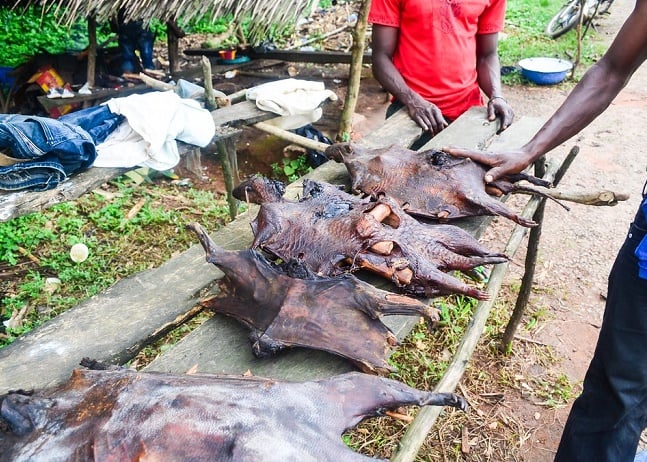A new survey commissioned by WildAid has shown the widespread consumption of wildlife better known as “bush meat” in Nigeria’s top cities, regardless of social status.
The survey, which was conducted by GlobeScan, involved 2,000 participants across Lagos, Abuja, Port Harcourt and Calabar, all major centres for the bush meat trade in Nigeria.
Nigeria is reportedly the transit point for illegal wildlife trade which is prevalent in West and Central Africa.
The report found 71 percent of participants had consumed bush meat at some point in their lives, while 45 percent had consumed it within the last year.
According to the survey, while wildlife is an important part of rural food security, “rapid urbanisation has caused a soaring urban demand for bush meat, despite widely available and affordable alternative protein sources.
“More than 50% who had consumed bush meat within the last year cited taste as the main reason, while 30% said it was part of their culture, and 25% said that it is healthier and fresher than regular meat and fish.”
Rasak Adekola, director of department of forestry at the federal ministry of environment, was quoted as saying the outcome of the survey is “quite revealing and will definitely form the basis for our step-up action against bushmeat consumption in Nigeria.”
“WildAid’s campaign against bush meat consumption is a highly commendable and timely initiative that will not only assist in ensuring that our wild animals are left in the wild, but also help in the control, and keeping zoonotic diseases at bay,” he added.
The survey also revealed that there is low public knowledge of existing wildlife legislation that prohibits hunting and trade of endangered species.
While only 31 percent of participants correctly identified that only some species are legal to buy and eat, almost nine out of ten (88 percent) said some or all bush meat should be legal.
Linus Unah, WildAid West African representative, spoke of the need to enlighten Nigerians about laws prohibiting the hunting and trade of wildlife in the country.
“We need to educate urban Nigerians, who typically live far away from forests where bush meat is often harvested, about the risks of zoonotic disease, the conservation impact of the bushmeat trade and the fact that current wildlife laws prohibit the hunting and trade of several species,” he said
Copyright 2025 TheCable. All rights reserved. This material, and other digital content on this website, may not be reproduced, published, broadcast, rewritten or redistributed in whole or in part without prior express written permission from TheCable.
Follow us on twitter @Thecablestyle

